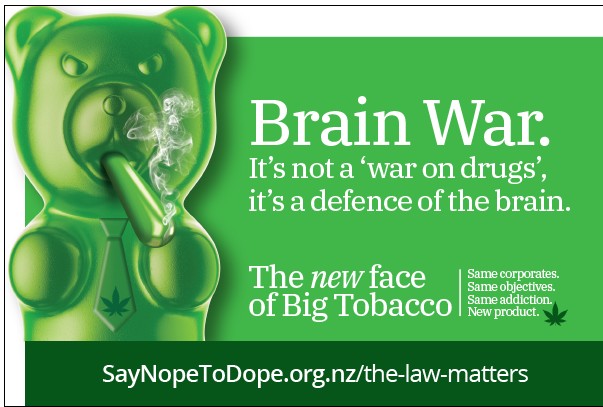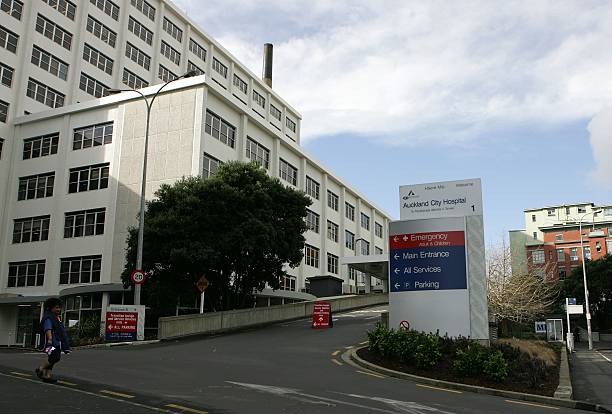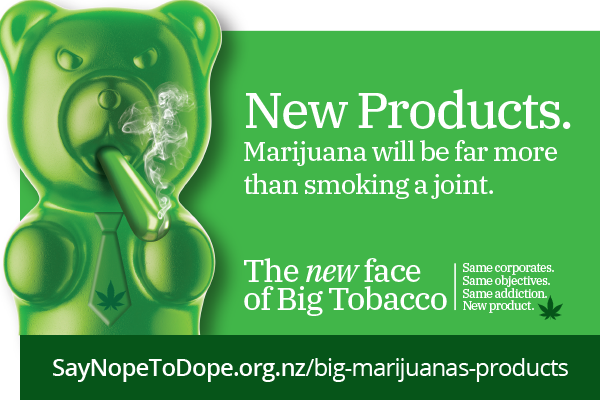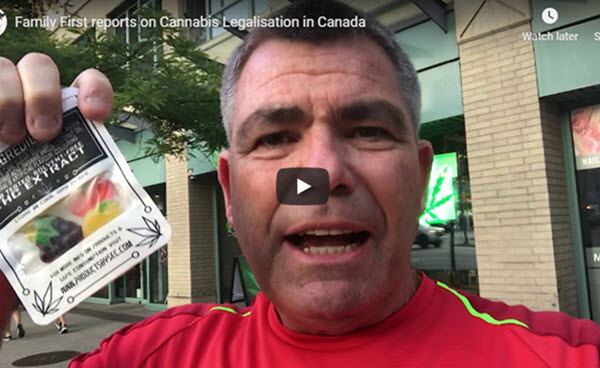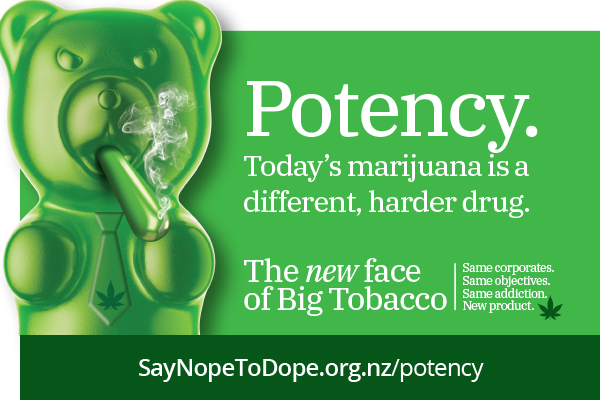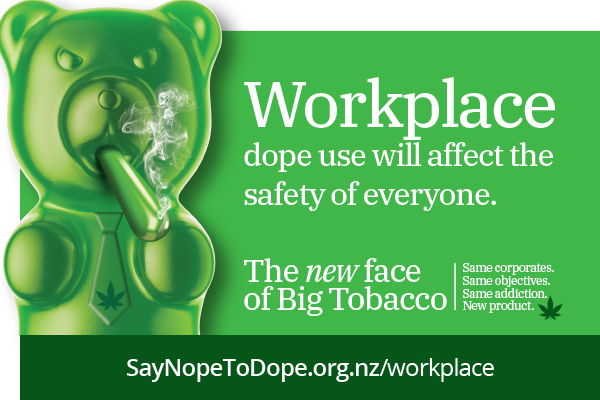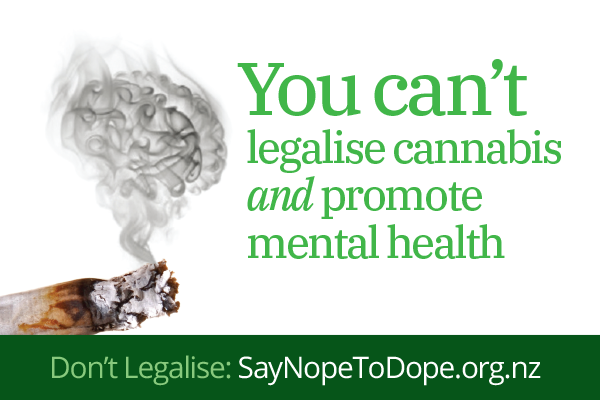
Media Release 17 August 2019
The SayNopeToDope Campaign is welcoming yet another poll showing plummeting support for legalising cannabis in New Zealand.
The Horizon Research poll shows support for legalising has plummeted from 60% last November to just 39%. This is a similar trend to the recent 1 NEWS Colmar Brunton Poll (39% support), and the Newshub-Reid Research Poll (41.7% support).
“We’re stoked that our messaging and our saynopetodope campaign is getting through to families. It is clear that while Kiwis strongly support a compassionate response to those in real need with a cautious and researched approach around cannabis medicine, when they thoughtfully consider the real implications of legalising recreational use, they completely reject the proposal – and rightly so,” says a spokesperson for the SayNopeToDope campaign.
Evidence shows that marijuana – which has skyrocketed in average potency over the past decades – is addictive and harmful to the human brain, especially when used by adolescents. In US states that have already legalised the drug, there has been an increase in drugged driving crashes, youth marijuana use, and costs that far outweigh tax revenues from marijuana. These states have seen a black market that continues to thrive, sustained marijuana arrest rates, and tobacco company investment in marijuana.
New statistics, collected by the Ministry of Health, show that in 2008 only 192 people were hospitalised with a primary cannabis diagnosis, but by 2018 this had increased by 160% to over 500. Almost 6,000 people over 10 years have been hospitalised. Those suffering from a psychotic disorder due to cannabis (the most common diagnosis) increased from 90 to 226 over the same time period – an increase of 150%. Earlier Ministry of Health figures gained under the Official Information Act show that 73 children (0 – 14 years) have been hospitalised in the past five years either for poisoning or for mental and behavioural disorders due to the use of cannabis.
“When people think about ‘cannabis’, they probably immediately think about the same overused photos by the media of a marijuana plant and a joint being smoked. But legalising marijuana will be far more than that. People will be popping it between classes, sucking on it while driving, drinking it before work, chewing on it while they talk to others, and eating it as a dessert. THC concentrate is mixed into almost any type of food or drink. The potency of edibles (several times that of an average joint) and their attractiveness to kids will lead to serious problems. THC-infused products will include: coffee, ice-cream, baked goods, lolly-pops, fizzy drinks, water bottles, tea, hot cocoa, breath mints & spray, intimate oils, pills, lollies, chewing gum, marinara sauce, baklava, and many more,” says a spokesperson for the SayNopeToDope campaign.
Recent polling by Curia Market Research found that 85% think that cannabis use can damage the brains of young people under the age of 25, 81% think that drivers using cannabis are more likely to cause accidents, 63% think that cannabis users aged under 25 are less likely to get a job (only 20% think it makes no difference) and half of NZers think that cannabis usage will increase if restrictions are reduced.
“At a time when New Zealand’s mental health system is bursting at the seams, why would we go and legitimise a mind-altering product which will simply add to social harm?”
The SayNopeToDope Campaign is calling on the government to stop wasting time and resources on a referendum and to focus their energies on more pressing issues such as housing, health, education and strengthening families.
ENDS

